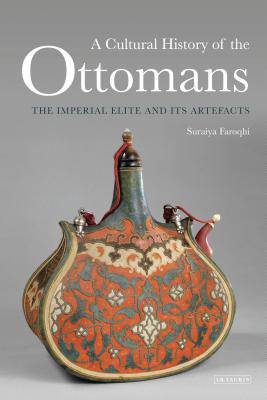
- Afhalen na 1 uur in een winkel met voorraad
- Gratis thuislevering in België vanaf € 30
- Ruim aanbod met 7 miljoen producten
- Afhalen na 1 uur in een winkel met voorraad
- Gratis thuislevering in België vanaf € 30
- Ruim aanbod met 7 miljoen producten
Zoeken
A Cultural History of the Ottomans
The Imperial Elite and Its Artefacts
Suraiya Faroqhi
Hardcover | Engels
€ 71,95
+ 143 punten
Omschrijving
Far from simply being a centre of military and economic activity, the Ottoman Empire represented a vivid and flourishing cultural realm. The artefacts and objects that remain from all corners of this vast empire illustrate the real and everyday concerns of its subjects and elites and, with this in mind, Suraiya Faroqhi, one of the most distinguished Ottomanists of her generation, has selected 40 of the most revealing, surprising and striking.Each image - reproduced in full colour - is deftly linked to the latest historiography, and the social, political and economic implications of her selections are never forgotten. In Faroqhi's hands, the objects become ways to learn more about trade, gender and socio-political status and open an enticing window onto the variety and colour of everyday life, from the Sultan's court, to the peasantry and slavery. Amongst its faiences and etchings and its sofras and carpets, A Cultural History of the Ottomans is essential reading for all those interested in the Ottoman Empire and its material culture. Faroqhi here provides the definitive insight into the luxuriant and varied artefacts of Ottoman world.
Specificaties
Betrokkenen
- Auteur(s):
- Uitgeverij:
Inhoud
- Aantal bladzijden:
- 328
- Taal:
- Engels
Eigenschappen
- Productcode (EAN):
- 9781784530969
- Verschijningsdatum:
- 30/08/2016
- Uitvoering:
- Hardcover
- Formaat:
- Genaaid
- Afmetingen:
- 147 mm x 236 mm
- Gewicht:
- 725 g

Alleen bij Standaard Boekhandel
+ 143 punten op je klantenkaart van Standaard Boekhandel
Beoordelingen
We publiceren alleen reviews die voldoen aan de voorwaarden voor reviews. Bekijk onze voorwaarden voor reviews.











